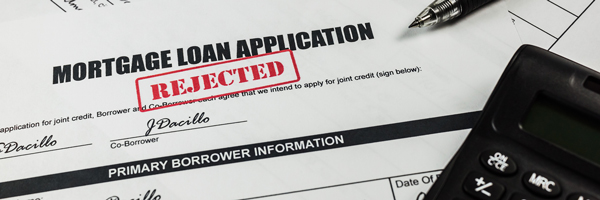A bad credit score can be really detrimental to anyone, but it can be particularly harmful to potential homebuyers. Credit scores range from 300 to 850, and the higher the better. Your credit score is a calculation of a variety of things such as:
- Timeliness of previous payments
- Debt to income ratio
- Type of credit
- How long you’ve held credit
A bad credit score—anything less than about 650—can make it extremely difficult to obtain a mortgage. A potential borrower’s payment history is important to banks because it displays to them how likely it is they will get their money back. Banks are businesses too, so they have to ensure that their investments are savvy.
 Bad credit does not completely eliminate an applicant’s ability to get a mortgage. However, it does make it expressly more difficult and means that you will likely not be able to obtain a conventional low-interest loan. There are two main ways that a home can be purchased despite bad credit:
Bad credit does not completely eliminate an applicant’s ability to get a mortgage. However, it does make it expressly more difficult and means that you will likely not be able to obtain a conventional low-interest loan. There are two main ways that a home can be purchased despite bad credit:
- FHA (Federal Housing Administration) loan: These are loans that are specifically provided to individuals with poor credit. However, credit scores below 500 are generally ineligible to qualify even for a FHA loan, and anything below 580 requires a down payment of at least 10%. Even so, most loans almost always require at least a 3.5% down payment. The lower the down payment, the higher the interest will be.
- Sub-prime mortgage: This is a type of mortgage that is offered to borrowers with low credit scores if they do not qualify for a conventional loan. Since these loans are riskier for lenders to offer, they charge much higher interest rates.
What is the correlation between bad credit and buying a home?
There is a significant correlation between poor credit history and difficulty in obtaining a mortgage, since lower credit scores introduce a number of obstacles in the home-buying process. These include:
- Rural or unusual properties are likely out of reach. These are harder to sell, which means banks are less likely to get the return on their investment. Additionally, if this property suffers a foreclosure, the bank will have a hard time getting it off of their hands. Therefore, they’ll be more cautious in offering loans for these types of properties.
- Interest rates increase dramatically as credit scores decrease. Not qualifying for a lower interest rate can lead to tens of thousands of dollars more in mortgage payments throughout the term of the loan.
- Insurance premiums are charged on FHA loans in order to make up for the increased risk of lending to someone with a lower credit score. This includes an upfront premium as well as an annual premium (paid monthly) that can vary from 0.25%-2%. It will continue to be charged until 20% of the house is paid off, resulting in thousands of dollars per year going to the FHA instead of towards the principle balance.
Building your Credit for the Future

Since a credit score is usually the largest determinant in obtaining a loan, all reputable lenders, brokers and specialists will recommend putting in the work to ensure that your score is at a high enough level to decrease the qualifying interest rate and avoid paying an insurance premium to the FHA. Putting in the effort to raise your score can save a potential home buyer a lot of money and provides for increased flexibility in the borrowing process.
A great diagram on how your credit score is calculated (e.g., what matters most?), provided by FICO.










